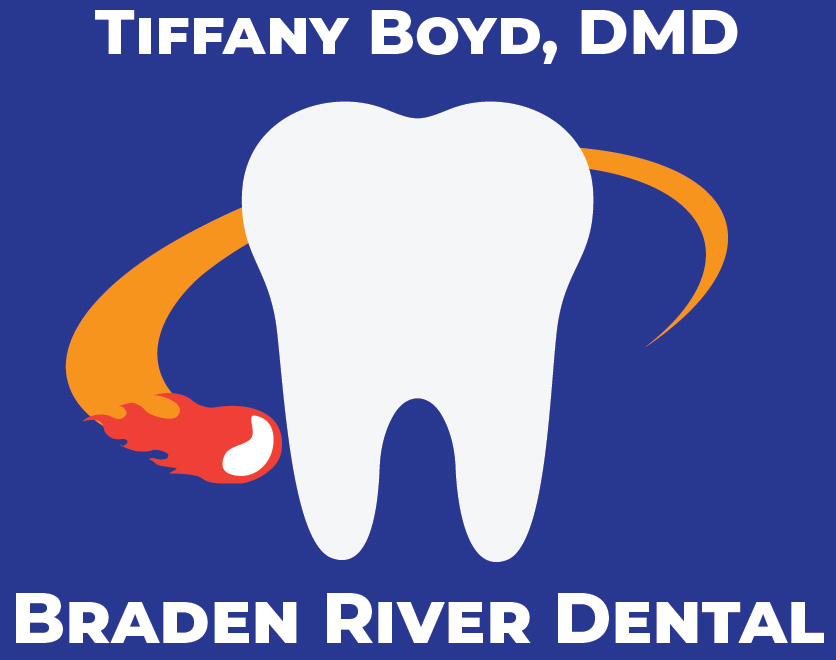
09 Feb Are You Providing Dental Care for Every Member of Your Family?
Bradenton dentist Dr. Tiffany Boyd understands the importance of providing dental care for every member of your family – including the furry, four-legged ones!
February is Pet Dental Health Month and Dr. Tiffany and her team of caring professionals at Braden River Dental in Bradenton want you to know that it is important to make sure your cat or dog gets proper dental care, too!
As the experts at the American Veterinary Medicine Association tell us, “Dental health is a very important part of your pet’s overall health, and dental problems can cause, or be caused by, other health problems. Your pet’s teeth and gums should be checked at least once a year by your veterinarian to check for early signs of a problem and to keep your pet’s mouth healthy.”
Signs Your Pet May Be Suffering from Poor Dental Health
Fido and Fluffy aren’t as likely as you are to get cavities, even if you do give them lots of treats in between meals! They could suffer from many of the other types of familiar dental ailments, though.
According to AVMA’s experts, the following are all common dental problems seen in both cats and dogs:
- Periodontal disease
- Broken teeth
- Abscesses or infected teeth
- Cysts or tumors in the mouth
- Malocclusion, or misalignment of the teeth and bite
- Broken (fractured) jaw
- Palate defects (such as cleft palate)
Periodontal disease, they say, is the most common problem. And it doesn’t just affect your pet’s teeth. “Other health problems found in association with periodontal disease include kidney, liver, and heart muscle changes,” AVMA reports.
So be sure to have your pet’s teeth checked at least once a year. You’ll want to see your veterinarian sooner if you notice your pet has any of the following problems:
- Bad breath
- Broken or loose teeth
- Teeth that are discolored or covered in tartar
- Abnormal chewing, drooling, or dropping food from the mouth
- Reduced appetite or refusal to eat
- Pain in or around the mouth
- Bleeding from the mouth
- Swelling in the areas surrounding the mouth
“Dental disease is more than just a cosmetic issue,” the folks at Dogtime report. “When your canine companion or feline friend has red gums, yellow teeth, and stinky breath, it could be a sign of serious oral disease that could, if left untreated, lead to devastating affects on your pet’s quality of life.”
In fact, they add, “Neglecting your pet’s teeth and gums can cause chronic pain issues that may even be at the center of certain behavioral problems.”
“Some pets become irritable when they have dental problems, and any changes in your pet’s behavior should prompt a visit to your veterinarian,” the AVMA adds.
We can’t help you with your pet’s dental care, but when the two-legged members of your family need dental care, the team at Braden River Dental in Bradenton will be here to help! Contact us to schedule an appointment.

Sorry, the comment form is closed at this time.